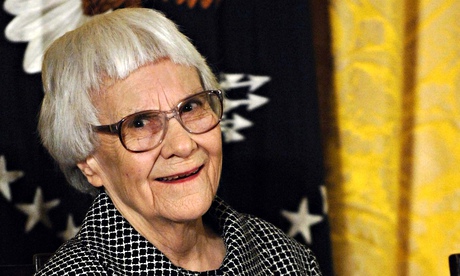
One of journalism’s perks is being able to access long-awaited cultural events before their general release; cue journalists bragging on Twitter about how they’re enjoying Jonathan Franzen’s Purity or forthcoming Oscar contenders. But the unwritten rule – and often written, signed and legally binding – is that reviews will be held until a mutually agreed date. However, this week the Times and the Mail broke traditional theatre protocol by reviewing the first preview of Benedict Cumberbatch’s Hamlet more than three weeks before the official press night. This isn’t the first time journalists have been liberal with embargo etiquette.
Last month, the New York Times broke a global embargo on reviewing Harper Lee’s Go Set a Watchman, revealing that To Kill a Mockingbird’s much-loved protagonist, Atticus Finch, had become racist in later life. Critic Michiko Kakutani had managed to get a copy from a mysterious source. With admirable candour, the NYT said: “Our policy is that we do not honour embargoes if we obtain a book independent of publishers’ official channels.”
The New Yorker magazine’s David Denby managed to anger producer Scott Rudin so much that he is banned from ever seeing another preview of his films again. In December 2011, Denby published a review of David Fincher’s The Girl With the Dragon Tattoo a week early. “You broke your word to us and that is a deeply lousy and immoral thing to have done,” wrote Rudin. Denby’s review had been largely positive, describing the film as mesmerising, but this made no difference to Rudin, who said the breach of trust was “deeply destructive”.
For the release of Oasis’s divisive third album, Be Here Now, the band’s management attempted to keep things “low key” and not let anyone hear it. Of course, this only increased the hype: when the first single was sent out for radio play, three separate stations broke the embargo. Following this, the label panicked and journalists had to sign a contract banning them from even discussing the album with their partners.
In 2012, the Associated Press and New York Daily News incurred the wrath of JK Rowling by publishing reviews of The Casual Vacancy, her first publication since the Harry Potter series and her first novel intended for adults, a few hours early. The draconian embargo issued by publishers Little, Brown reportedly forbade news organisations from mentioning that the book even existed, and was criticised by the Independent’s Matthew Bell as “ruthless” and “bullying”.
The 2011 Broadway musical Spider-Man: Turn Off the Dark, featuring music from U2’s Bono and The Edge, had a troubled production: rehearsals and previews went on far longer than expected, there were serious injuries on set, and constant technical problems. As the press night was delayed again and again, New York critics took the matter into their own hands and went to see whether the show was really as bad as people were saying. It was. It went on to close in January 2014 having lost up to $60m.

